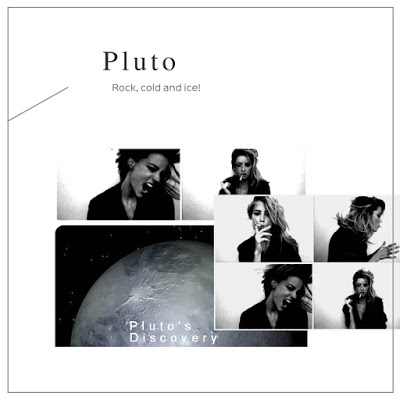
The Piscean Depths: Dissolution and Transformation
 The zodiac, a celestial cycle that defines the astrological year, culminates with Pisces, the twelfth and final sign, which is associated with Neptune as its ruling planet. This positioning in the astrological sequence holds profound symbolism and significance. Pisces, often depicted as two fish swimming in opposite directions, carries a unique blend of energies and archetypal themes that tie in closely with the idea of death and dissolution. The pairing of Pisces with themes of death and dissolution may appear unusual at first glance, but when examined in the context of its placement as the concluding sign in the zodiac, it becomes more comprehensible. Pisces serves as a symbolic representation of the ultimate stage in the cycle of life, where things naturally tend toward dissolution, disappearance, and fading away.
The zodiac, a celestial cycle that defines the astrological year, culminates with Pisces, the twelfth and final sign, which is associated with Neptune as its ruling planet. This positioning in the astrological sequence holds profound symbolism and significance. Pisces, often depicted as two fish swimming in opposite directions, carries a unique blend of energies and archetypal themes that tie in closely with the idea of death and dissolution. The pairing of Pisces with themes of death and dissolution may appear unusual at first glance, but when examined in the context of its placement as the concluding sign in the zodiac, it becomes more comprehensible. Pisces serves as a symbolic representation of the ultimate stage in the cycle of life, where things naturally tend toward dissolution, disappearance, and fading away.
One way to understand this symbolism is by considering the concept of boundaries. Throughout the astrological journey, the signs gradually evolve, each with its own set of characteristics and experiences. Pisces, as the culmination of this journey, represents the breaking down of boundaries and the blurring of lines. It symbolizes the weakening of the physical identity, where the ego starts to lose its grip, and form begins to dissolve.
Psychologists have drawn parallels between the Piscean experience and the process of sleep, which is also ruled by Pisces. When we fall asleep, we enter a state of unconsciousness where our conscious control diminishes. The ego, which is typically dominant during waking hours, recedes, and we become less aware of our physical identity. This transition into sleep is akin to a small death – a temporary release from the constraints of the material world and a journey into the depths of the unconscious.
Furthermore, the association of Pisces with Neptune, the planet of dreams, mysticism, and spirituality, amplifies these themes of dissolution and transcendence. Neptune’s influence encourages us to explore the realms beyond the physical, to delve into the mysteries of the unconscious mind, and to embrace the ethereal and spiritual dimensions of existence.
In essence, Pisces represents the final stage of the zodiac, where the boundaries between the self and the universe blur, where the ego relinquishes control, and where we confront the inevitability of dissolution. This symbolism of death and fading away in Pisces is not to be feared but rather embraced as an integral part of the cosmic cycle, offering the potential for spiritual growth, transcendence, and the renewal of the self. It reminds us that in letting go, we may find a deeper connection with the mysteries of existence and ultimately experience a profound sense of oneness with the universe.
What strikes me is that, from one second to the next, our ego of the dream finds itself projected into a new world, without feeling the astonishment which this world would rouse in a waking state…we ourselves remain in another universe, which might suggest that when falling asleep we are like a traveler who wakes with a start…The past, the future no longer exist; the dead rise again; places construct themselves without architect…it can only be described as supernatural…We consent without regret to live there among strangers, entirely separated from our habits and our friends. This is what fills us with dismay at the sight of the face we love, and which is asleep. Where, at this moment, stirs the face behind this mask? Where does it light up and for whom? This sight of sleep has always frightened me more than dreams…Emerged from sleep the dream fades. It is a deep sea plant which dies out of water. It dies on my sheets. Its reign mystifies me. I admire its fables. I take advantage of it to live a double life…What it teaches us is the bitterness of our limitations. By Jean Cocteau
Pisces being a water sign and ruled by Neptune adds a layer of symbolism and depth to its boundless and often enigmatic nature. The connection between Pisces and water, particularly in the context of Neptune, carries rich mythological and psychological implications. Water, as an element, is fluid and shape-shifting, much like the Piscean personality. It embodies the concept of boundlessness, as it has no fixed form or boundaries. In this sense, Pisces reflects the fluidity of emotions, imagination, and intuition. It is a sign that is deeply attuned to the ebb and flow of life’s currents, both in the external world and the inner realms of the psyche.
The association between Pisces and Neptune, often referred to as the “god of the sea,” is significant. Neptune, in mythology, holds dominion over the vast depths of the ocean, which are often considered a realm of mystery, magic, and profound emotional depths. This connection reinforces Pisces’ affinity for the intangible and the spiritual, as well as its proclivity for transcending earthly boundaries. The myth of the great flood is a powerful archetype that resonates with Piscean energy. The idea of a cataclysmic deluge that wipes the slate clean can be seen as a metaphor for the cyclical nature of existence and renewal. It represents a process of dissolution and rebirth, akin to the changing seasons. When the floodwaters recede, they leave behind fertile soil for new growth, mirroring the emergence of spring after a period of darkness and chaos. In Liz Greene’s book, “Neptune and the Quest for Redemption,” the fear of the flood takes on a psychological dimension.
Piscean and Neptune types, who are deeply attuned to the unconscious and the collective, may experience a sense of vulnerability when they dare to live an individual life. This fear stems from the notion that embracing personal identity and differentiation may trigger a “flood” of overwhelming emotions or a loss of connection to the boundless, which can be both enticing and terrifying. The mythological and psychological dimensions of the great flood archetype underscore the complex interplay between the Piscean desire for transcendence and the fear of losing oneself in the vast sea of the unconscious. It is a reminder that Pisces, as the final sign of the zodiac, invites us to navigate the waters of the soul and ultimately find redemption through the acceptance of our own fluid and ever-evolving nature.
in Liz Greene’s book, “Neptune and the Quest for Redemption,” there’s this idea that when Pisces or Neptune types try to live life as individuals, there’s this primal fear, you know? It’s like they’re afraid that the flood, this tidal wave of emotion and dissolution, is gonna come crashing down and wipe them out. It’s like facing the abyss, where everything you thought you knew disappears into the depths. Imagine it like this: it’s like riding a cosmic wave, this wave of the unknown. It’s thrilling and terrifying all at once. But it’s also a journey into the depths of the soul, where boundaries vanish, and you’re left with this raw, unfiltered connection to the universe. You see, Pisces, with all its watery wisdom, dances on the edge of surrendering to the depths of the unconscious.
The Knot of Time
The salmon swim upstream once a year to spawn and to die in the place where they were born. His journey back to the beginning symbolizes the process whereby Pisces enters into her past to know herself better, to allow old and unwanted parts of herself to die and to allow new parts to be created. Pisces has the ability, paralleled only by Scorpio, to recreate her own life. She is open to many forces of healing, and this openness is ultimately the way for her to reach a place of even deeper wisdom and understanding than she knew before. By The Knot of Time
A common thread involving the water signs entails some kind of “sacrifice” and it is often a watery death, especially in Pisces. And the greatest conflict between matter and spirit as the sign is always pining for the spiritual/ afterlife, in the same way that an alcoholic is longing for his next drink. The River Lethe of forgetfulness is also Piscean, describing this washing of the memory, and it also rules the place of the departed. Walter H. Samuel calls this Piscean realm ‘the home of the vanishing,’ where all things merge and melt into the Universe.







 Material Mysteries: Pluto in the 2nd House, According to Astrological Research
Material Mysteries: Pluto in the 2nd House, According to Astrological Research
 Signs You’re a Plutonian (Part 2)
Signs You’re a Plutonian (Part 2)
 Moon Trine Mars Natal Aspect
Moon Trine Mars Natal Aspect
 Pisces Fish Symbol Meaning
Pisces Fish Symbol Meaning
 Uranus Transits the 4th House: The Chaotic Path to Personal Inner Growth
Uranus Transits the 4th House: The Chaotic Path to Personal Inner Growth
 Taurus: Psychology
Taurus: Psychology
 Sun Square Pluto Natal Aspect: I Am Titanium
Sun Square Pluto Natal Aspect: I Am Titanium
 Sun Conjunct Pluto Synastry: Enlightening or Annihilating
Sun Conjunct Pluto Synastry: Enlightening or Annihilating
 Venus Trine Saturn Synastry
Venus Trine Saturn Synastry
 Sun Square Pluto Synastry: You’ve Got That Power Over Me
Sun Square Pluto Synastry: You’ve Got That Power Over Me
 Pluto’s Discovery and Astronomical Features
Pluto’s Discovery and Astronomical Features
 Jungian and Freudian Astrology: Part 1
Jungian and Freudian Astrology: Part 1
 Moonlight Psychology
Moonlight Psychology
 Mars-Pluto Synastry: Something Quite Dark and Dangerous
Mars-Pluto Synastry: Something Quite Dark and Dangerous
 Pluto: 13 Dark Truths
Pluto: 13 Dark Truths
 The Differences Between Synastry and Composite Charts!
The Differences Between Synastry and Composite Charts!
 Mars Conjunct Pluto Synastry
Mars Conjunct Pluto Synastry
 By Jove!
By Jove!
 Saturn Conjunct Pluto Natal Aspect
Saturn Conjunct Pluto Natal Aspect
 Neptune in the 1st House
Neptune in the 1st House